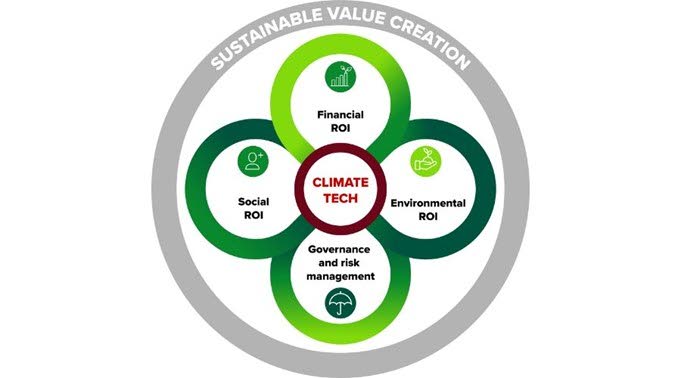Climate technology, or climate tech, has transitioned from a futuristic concept to a present-day necessity, according to a recent report by ACCA. As global organizations strive to achieve net-zero and sustainability goals, climate tech is increasingly recognized as a critical driver of innovation and investment. However, the readiness to adopt these technologies varies significantly across sectors. With COP30 underway in Brazil, the report highlights both the momentum and challenges in integrating climate tech into organizational strategies, emphasizing the pivotal role of accountants in bridging the gap between ambition and action. Climate tech is reshaping industries, creating opportunities, and attracting investment. While only 15% of organizations currently invest with clear financial or strategic rationale, there is growing interest in cautious investment (42%) and non-financial returns such as ESG and brand value (21%). Key areas of adoption include energy efficiency, carbon compliance, and sustainable supply chains, with green finance, carbon offsetting, and climate risk planning emerging as strategic priorities. Accountants are instrumental in guiding investments, embedding climate considerations into strategy, and ensuring transparent reporting. The report identifies challenges such as data readiness, long-term ROI, and internal capabilities but underscores the potential of AI and robust frameworks to unlock measurable value. Emmeline Skelton, ACCA’s Head of Sustainability, noted that while climate tech investments often involve high upfront costs and long payback periods, their true value lies in enhancing resilience, reducing long-term risks, and fostering sustainable value in a low-carbon economy. She emphasized the role of finance teams in shifting focus from quick returns to long-term benefits. The research also reveals a significant readiness gap, with 72% of organizations struggling with fragmented data, weak governance, or insufficient knowledge. Government support through policy, tax incentives, and skills development is deemed essential by 77% of organizations. By combining strong data, strategic oversight, and supportive public policy, accountants can help scale climate tech and rethink ROI. Additionally, ACCA’s research highlights the importance of interconnected sustainability and financial information for organizational resilience. Many respondents struggle to understand vital resources (25%) and stakeholder information needs (33%). The report offers ten recommendations, including moving beyond compliance, championing sustainability, and building agile systems to address these challenges.
